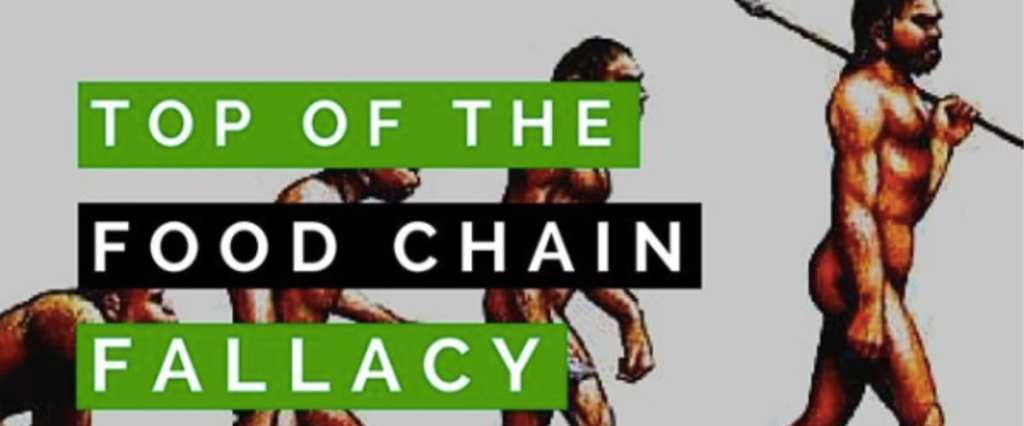When you hear about all of the damage people are doing to the planet and the animals on it, it’s easy to assume that we’re the biggest and baddest predator ever born.
But while we are destructive on a massive level, when it comes to basic food chain math it turns out we don’t actually come out on top.
If you don’t recall from high school biology, animals are ranked by “trophic levels,” and there are 5 of them:
https://www.instagram.com/p/Be50SB6hNbo/
Level 1 (Producers): Plants and algae that make their own food (usually via photosynthesis).
Level 2 (Primary Consumers): Herbivores that eat plants.
Level 3 (Secondary Consumers): Carnivores that consume herbivores.
Level 4 (Tertiary Consumers): Carnivores that eat both herbivores and other carnivores.
Level 5 (Apex Predators): These carnivores have no natural predators and represent the top of the food chain.
A French organization combined “ecological theory, demography, and socio-economics” in order to calculate where humans would fall on this scale (a Human Trophic Level, or HTL). They used food-supply data from the U.N. Food and Agricultural Organization and published their results in Proceedings of the Natural Academy of Sciences.
https://www.instagram.com/p/Bg4uT6AnCMm/
And…we’re not even close to the top, it turns out.
We come out with a trophic level around 2.21, depending on our diet, while apex predators like tigers, crocodiles, and boa constrictors live securely at a 5.
Humans are around the same ranking as an anchovy or a pig (different ecosystems).
The number varied slightly between regions; the lowest score was a 2.04 in locations where people primarily ate plants and the highest a 2.54 in Iceland, where most meals are meat-centric.
Our score is increasing over time, but the authors of the paper urge people to really consider what it means, as far as our natural place in the world.
https://www.instagram.com/p/B7TXkw3DbhY/
“HTL can be used by educators to illustrate the ecological position of humans in the food web, by policymakers to monitor the nutrition transition at global and national scales and to analyze the effects of development on dietary trends, and by resource managers to assess the impacts of human diets on resource use.”
These levels don’t take into consideration a fairly unique-to-humans penchant for killing for fun, or the weapons at our disposal, which would make us able to kill an apex predator should the need and/or opportunity arise. This research only rates us based on our natural diet.
https://www.instagram.com/p/B5iPRvUBfy0/
We’re meant to be much more a part of the circle of life rather than the one spinning the wheel. That fact seems to be lost on many, but if it were realized and respected, it could be the beginning of bringing a more natural, healthy balance back to the world.






